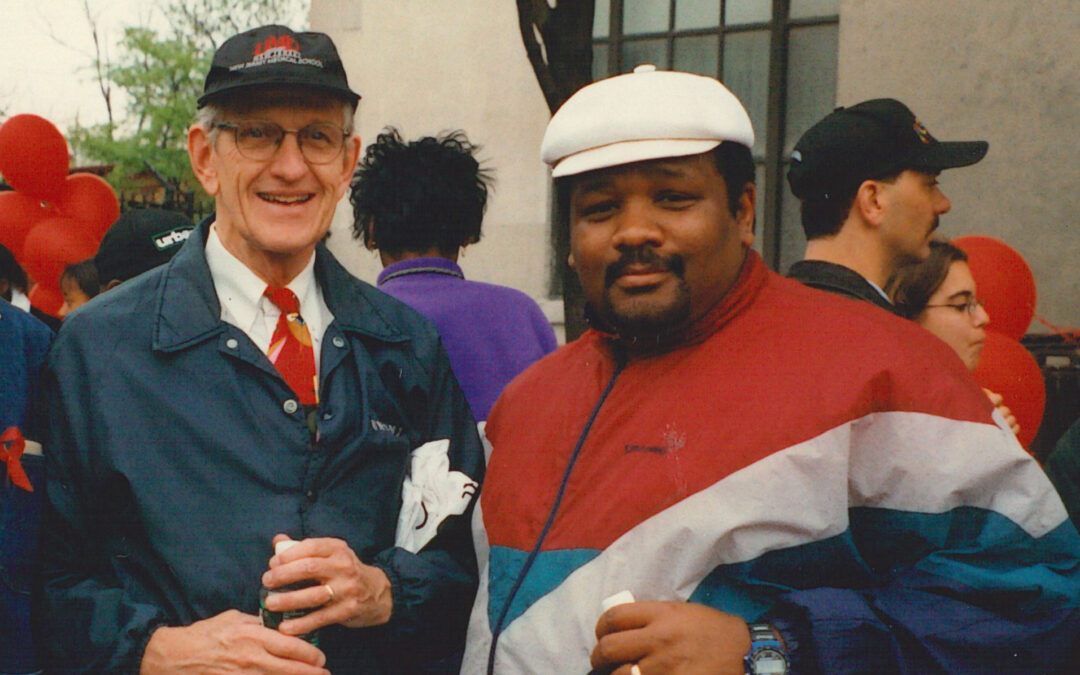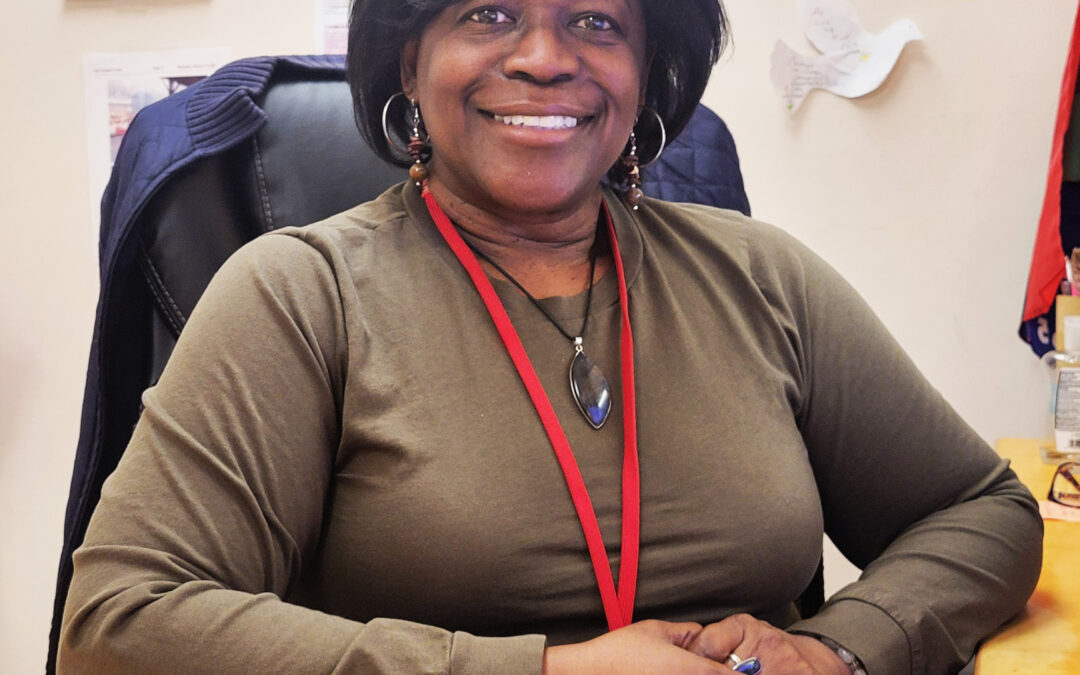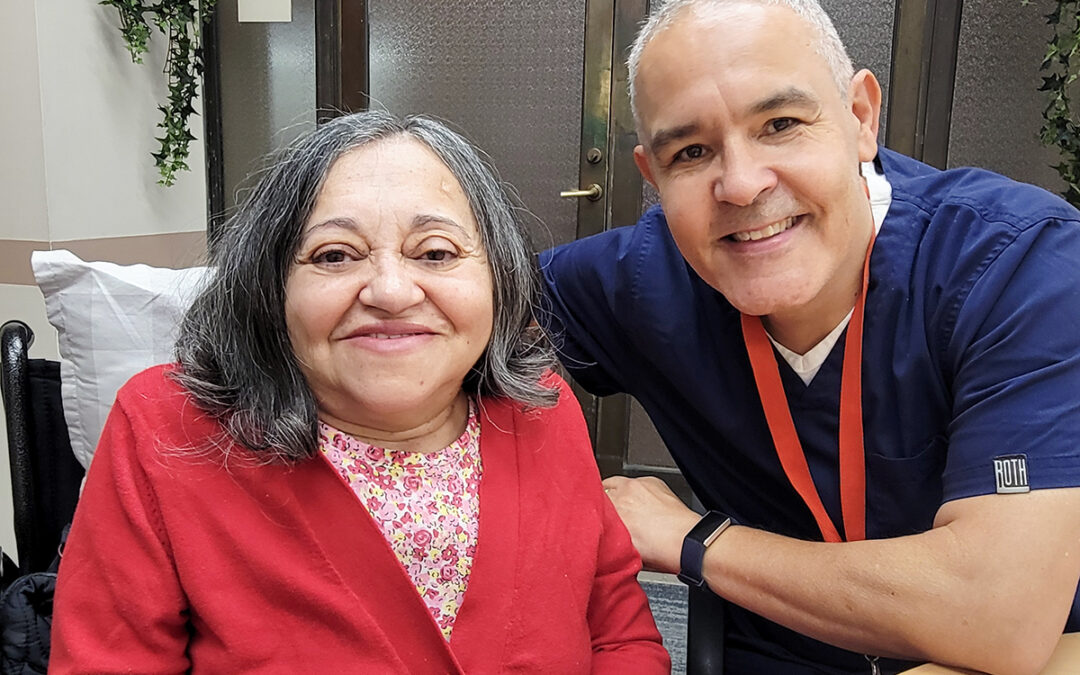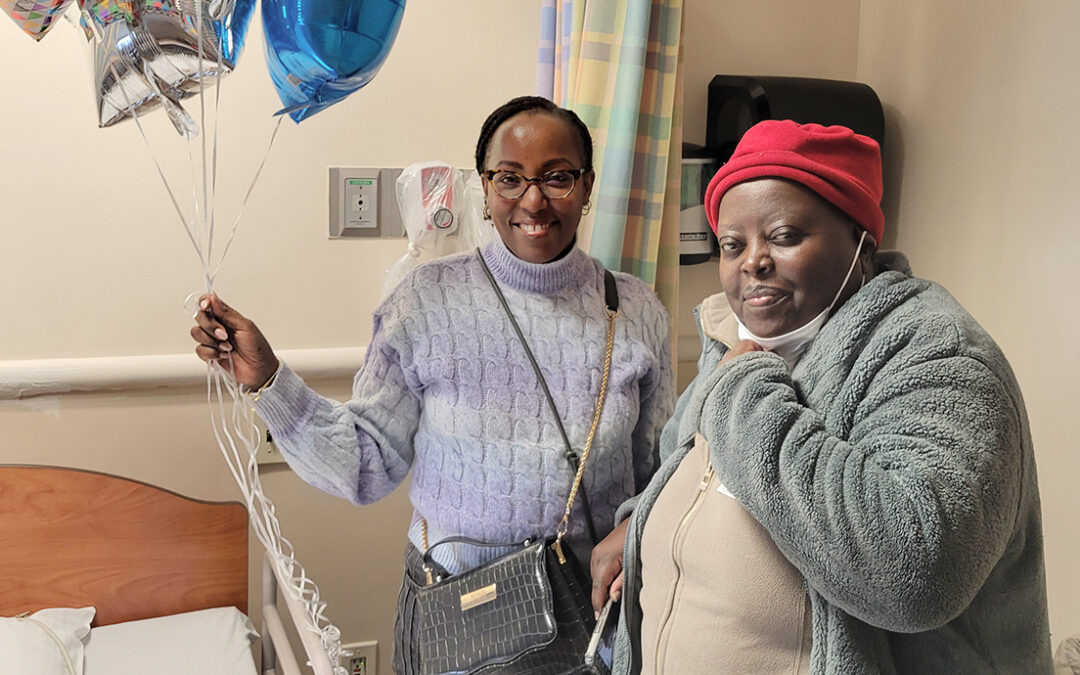Broadway House for Continuing Care is set to participate in an important study funded by the National Institutes of Health to determine the quality of care provided to older adults with HIV in nursing homes. When Broadway House President and CEO James Gonzalez, MPH, FACHE, LNHA, first heard about the research proposed by Brianne Olivieri-Mui, MPH, PhD, he knew it was a perfect fit for the Newark facility.
As New Jersey’s only HIV/AIDS nursing home, Broadway House has a national reputation for the care it provides to our highly vulnerable population. The comprehensive program here includes a highly qualified care team, leading infectious disease doctors, advanced practical nurses (APNs) on staff, and consistent funding through the federal Ryan White HIV/AIDS Program. These factors have led to great outcomes for Broadway House residents.
“It behooves long-term care facilities like Broadway House to understand the nature of HIV/AIDS care and treatment,” said Mr. Gonzalez. “This population is clearly aging as we enter 40+ years of this epidemic. At Broadway House, we are willing to share our knowledge for the betterment of others. Through this study, we’re confident that our model of care can be replicated by other organizations.”
Dr. Mui said, “What I’m hoping is that we can use Broadway House as a gold standard for care. I’d like to study how things are done here as a potential guide for other nursing homes that are less familiar with HIV as a condition among older people.”

Meet Brianne Olivieri-Mui, MPH, PhD
Assistant Professor
Department of Health Sciences at The Roux Institute
Northeastern University
Adjunct Scientist
The Marcus Institute for Aging Research
Hebrew SeniorLife
Please tell us a little about yourself.
I was raised in New Fairfield, Conn., in a relatively low-income house with divorced parents. I was in the honors program at the University of Vermont studying biology and chemistry before moving to New York City, where my parents are from, to work in clinical chemistry and genetics labs at Memorial Sloan Kettering Cancer Center, and then at The Rogosin Institute. While working in the labs, I went to school at night to earn my master’s in public health at Hunter College and became a biostatistician with the World Trade Center research studies for the Fire Department of New York.
After a few years in public health, I knew I wanted to study HIV and rise to the level of a research leader. I applied to a PhD program in population health at Northeastern University. This training was intense and helped me reach a new level of purpose and fulfillment. Learning about gerontology, health services research, care quality, and policy helped me realize how my research ideas could help shape the health outcomes of vulnerable populations. I pursued a post-doctoral fellowship through the Harvard Medical School Translational Research in Aging program. This helped me grow my technical and leadership skills. Later, I returned to Northeastern University as an Assistant Professor in Health Sciences with a dual appointment at the Roux Institute.
How did you get into HIV/AIDs research?
It’s funny how life brings us what we need. I have personal experiences with friends who introduced me to HIV at a young age. My zodiac sign is Cancer, so my nature is to care too much and be highly empathetic. Those experiences showed me that HIV is more than a virus—it’s a multidimensional factor, impacting health and social well-being. That realization inspired me to figure out how I could help reduce that impact. The aging focus came from serendipity; my dissertation advisor had Medicare data and a quick review of the literature said more research was needed on older people with HIV.
Can you describe the focus of your current research?
As a result of these cumulative educational experiences, I have become a data researcher who uses large existing databases such as Medicare claims to study HIV and aging, specifically related to nursing homes. My current study will try to understand the experiences of older people with HIV accessing their HIV medication during a nursing home stay.
What will your methodology involve?
I plan to have semi-structured interviews with folks recruited through word of mouth and flyers, here at Broadway House and across New England. The interviews are really just a conversation in which I’ll ask participants to tell me about their stay, how they were given medication, any changes, and their general feeling about their nursing home stay. We know from previous research that people with HIV tend to use lower quality nursing homes; that adherence improves if the facility has a higher concentration of people with HIV.




